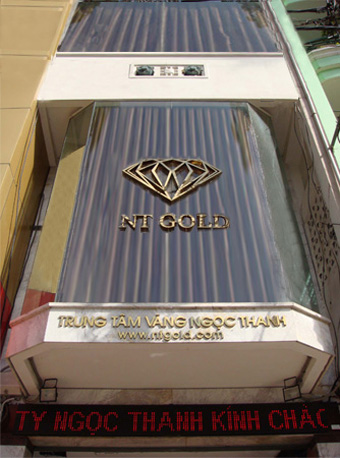India approved plans to grant the nation’s poor the right to buy food grains at subsidized rates, meeting a pledge by the ruling Congress party to spread the benefits of growth while putting at risk the deficit target.
The Food Security Bill was approved by the Cabinet, Information and Broadcasting Minister Ambika Soni told reporters in New Delhi yesterday, without elaborating. The bill will need the consent of the parliament to become law.
Prime Minister Manmohan Singh is betting on the legislation, the drafting of which was overseen by Congress party President Sonia Gandhi, to woo voters before elections in five states in the first half of next year. Providing cheap grain to the poor in India, the world’s second-biggest consumer of wheat and rice, may inflate the subsidy bill by about 320 billion rupees ($6.1 billion) every year and widen the nation’s fiscal deficit.
“In the current fiscal situation it will add to the strain,” said Dharmakirti Joshi, an economist at ratings company Crisil Ltd., the Indian unit of Standard & Poor’s. “You need a social safety net, but it has to be appropriately designed. There are so many subsidies which hardly reach” the intended groups in India, he said.
Slowing Growth
India’s finance ministry said in a Dec. 9 report that lower tax collections in a slowing economy and delayed plans to sell stakes in state-owned companies may mean it may fail to meet its goal of narrowing the budget deficit to a four-year low of 4.6 percent of gross domestic product in the year ending March 31.
The economy may expand 7.25 percent to 7.75 percent in the current fiscal, less than the 9 percent growth estimated in February, the report showed.
The government will require 950 billion rupees a year to implement the policy, which will provide grains to 64 percent of India’s 1.2 billion people, or about 768 million, Food Minister K.V. Thomas told reporters last week. The government currently spends 630 billion rupees in supplying food grain to the poor, he said.
Every Indian falling within the so-called priority category will get 7 kilograms (15.4 pounds) of rice or wheat or millet a month, Thomas said. Rice may be sold at 3 rupees per kilogram, wheat at 2 rupees and millet at 1 rupee, he said. That compares with market prices of 24 rupees a kilogram for rice in New Delhi and 15 rupees a kilogram for wheat, according to data provided by the food ministry.
Widows, Children
The law, if passed by parliament, will enable widows, senior citizens, pregnant women and school children to receive cooked food, according to Thomas.
Yashwant Sinha, a leader of the main opposition Bharatiya Janata Party, said last week it would only decide whether to support the bill once details had emerged.
The Food Security Bill will fulfill an election pledge by Singh’s Congress party in 2009 that it will supply 25 kilograms of rice or wheat at below-market rates to poor families each month if voted back to power.
Singh, 79, who as finance minister in the early 1990s engineered India’s move away from a state-controlled economy, has shifted his focus in his terms as prime minister since 2004 toward direct support for the poor, in a nation where the World Bank says more than 75 percent of the people live on less than $2 a day.
He enacted a jobs plan in 2006 that gives 100 days’ work a year to any rural household that requests it, and this year indexed the pay rates to the pace of inflation. Singh has been guided by Gandhi, the head of the National Advisory Council, in formulating these policies.
Street Protests
Singh’s government is bidding to get its policy agenda back on track after a year spent countering allegations of corruption reaching to the heart of his administration. Opposition and street protests over charges of graft and inflation that has stuck above 9 percent this year have further weakened Singh.
The government will need 61 million metric tons of food grains to implement the law compared with its annual purchase of about 55 million tons from farmers, Thomas said.
“In case the government doesn’t have sufficient grains to distribute, people will receive cash to buy grains from the market,” he said.
State stockpiles were 54.8 million tons as of Dec. 1, compared with 48.6 million tons a year earlier, according to state-run Food Corp. of India.
To contact the reporter on this story: Prabhudatta Mishra at pmishra8@bloomberg.net; Pratik Parija in New Delhi at pparija@bloomberg.net
To contact the editors responsible for this story: James Poole at jpoole4@bloomberg.net; Sam Nagarajan at samnagarajan@bloomberg.net
| TIME | |||||
|---|---|---|---|---|---|
| Sydney | Tokyo | Ha Noi | HongKong | LonDon | NewYork |
| Prices By NTGOLD | ||
|---|---|---|
| We Sell | We Buy | |
| 37.5g ABC Luong Bar | ||
| 9,575.70 | 8,565.70 | |
| 1oz ABC Bullion Cast Bar | ||
| 7,990.50 | 7,100.50 | |
| 100g ABC Bullion Bar | ||
| 25,438.50 | 22,573.50 | |
| 1kg ABC Bullion Silver | ||
| 5,062.90 | 3,512.90 | |
Powered by: Ngoc Thanh NTGold
- Online: 91
- Today: 1902
- Total: 7135945














